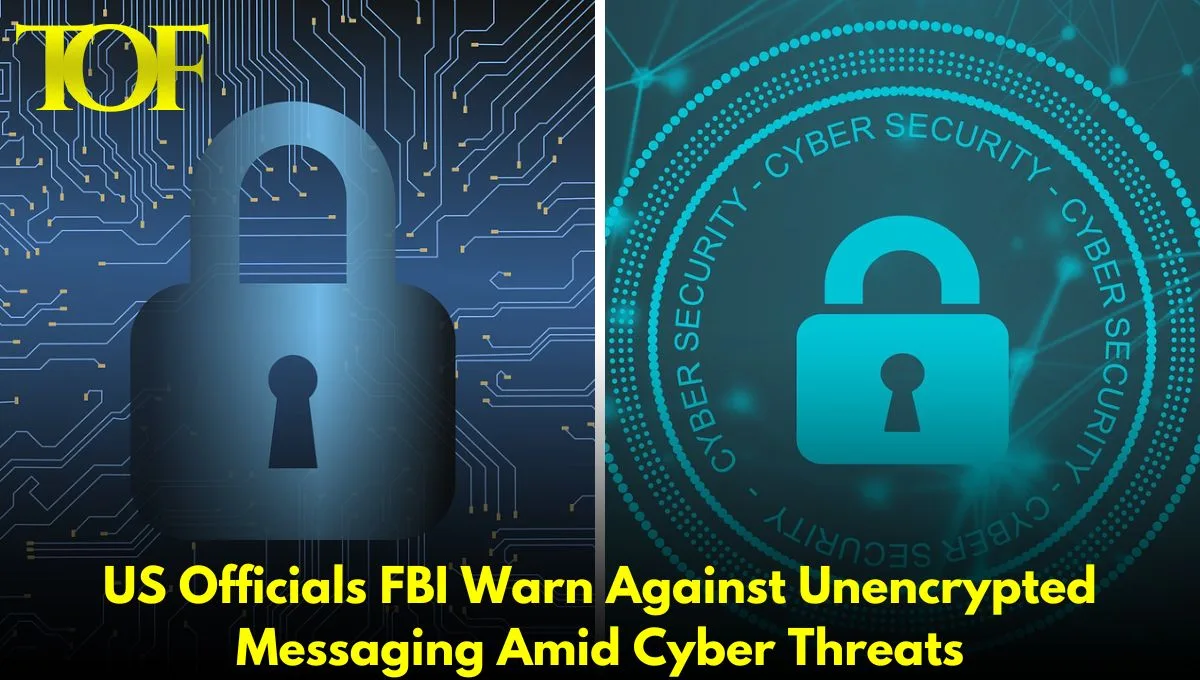Given that cyber-security concerns continue to worsen, American officials and the FBI are calling for public adaptation to encrypted communication, based on the latest exposure of enormous cyber espionage carried out by groups with affiliations to China. Hackers, commonly referred to as Salt Typhoon, have exposed weaknesses in the country’s telecommunication structure, hence, the FBI and the CISA issued warnings concerning insecure messaging systems.
The Gravity of the Salt Typhoon Hack
The Salt Typhoon campaign had been reportedly linked to the China Ministry of Public Security and has reportedly targeted multiple telecommunication companies, possibly fetching call metadata, communication records, and in a minimal number of cases, private messages and content of certain calls, especially if about governments or politically related activities. According to the FBI sources, however, indicate that this leakage had been going on since spring and still lacked a “fixed remediation time frame”.
This campaign represents something even larger: an attempt at deeper cyber-espionage penetration and the extraction of sensitive information from critical pieces of infrastructure in the US. The Senate has scheduled hearings on these vulnerabilities by officials promising to tighten network security.
The Encryption Divide
Text messages sent between Apple’s iMessage and Google’s RCS (Rich Communication Services) platforms are encrypted, but not the communications between Android and Apple devices. This gap has amplified concerns because such unencrypted messages are more likely to be intercepted.
Jeff Greene, CISA’s Executive Assistant Director for Cybersecurity, underscored the importance of encryption: “Encryption is your friend, whether it is on text messaging or voice communication. Even if intercepted, encrypted data is virtually impossible to decipher.”
This notion is echoed by the FBI as it encourages Americans to turn to encrypted platforms such as Signal and WhatsApp. The two applications are end-to-end encrypted, meaning the service providers cannot access their content.
Political and Security Implications
Political frenzy erupted because of the magnitude of the breach, while US senators demanded immediate protective measures over the country’s telecommunication infrastructure. Inside a closed briefing, law enforcement and lawmakers were given the briefing on the full impact of the breach regarding possibly using CALEA facilities. Systems under CALEA, which are essentially supposed for lawful surveillance, may thus unwittingly expose sensitive information to an adversary.
FCC Chair Jessica Rosenworcel recommended increased regulatory oversight to make sure telecom networks have sturdier security. Regarding the incident, she said,
“Because technology advances, so does the capability of our foes. We must bolster our defenses to protect our most critical infrastructure.”
Practical Steps for the Public
As cyber threats become widespread, government cybersecurity officials suggest concrete steps to secure personal communications.
- Adopt Encrypted Applications: Use Signal or WhatsApp for secure text and voice communication.
- Keep Phones Up-to-Date: Ensure timely OS updates for your device
- Enable Multi-Factor Authentication: Use phishing-resistant MFA for email and social media accounts to add extra protection
A Complex Relationship with Encryption
The FBI’s call for “responsibly managed encryption” has ignited controversy, since the agency has been an antagonist of encryption that prevents access to communications. However, privacy advocates counter that robust encryption is essential to protect against espionage.
Ron Wyden, an ardent Senate privacy advocate, criticized current practices:
“The reliance on unencrypted systems such as CALEA makes sensitive communications vulnerable. It is time for a complete overhaul, with security at the top of the list.”
A Warning for the Future
The breach demonstrated by the Salt Typhoon shows how vulnerable communications can be. With adversaries targeting telecom networks, encrypted solutions are no longer optional but a matter of personal and national security.
To Read More: Technology

